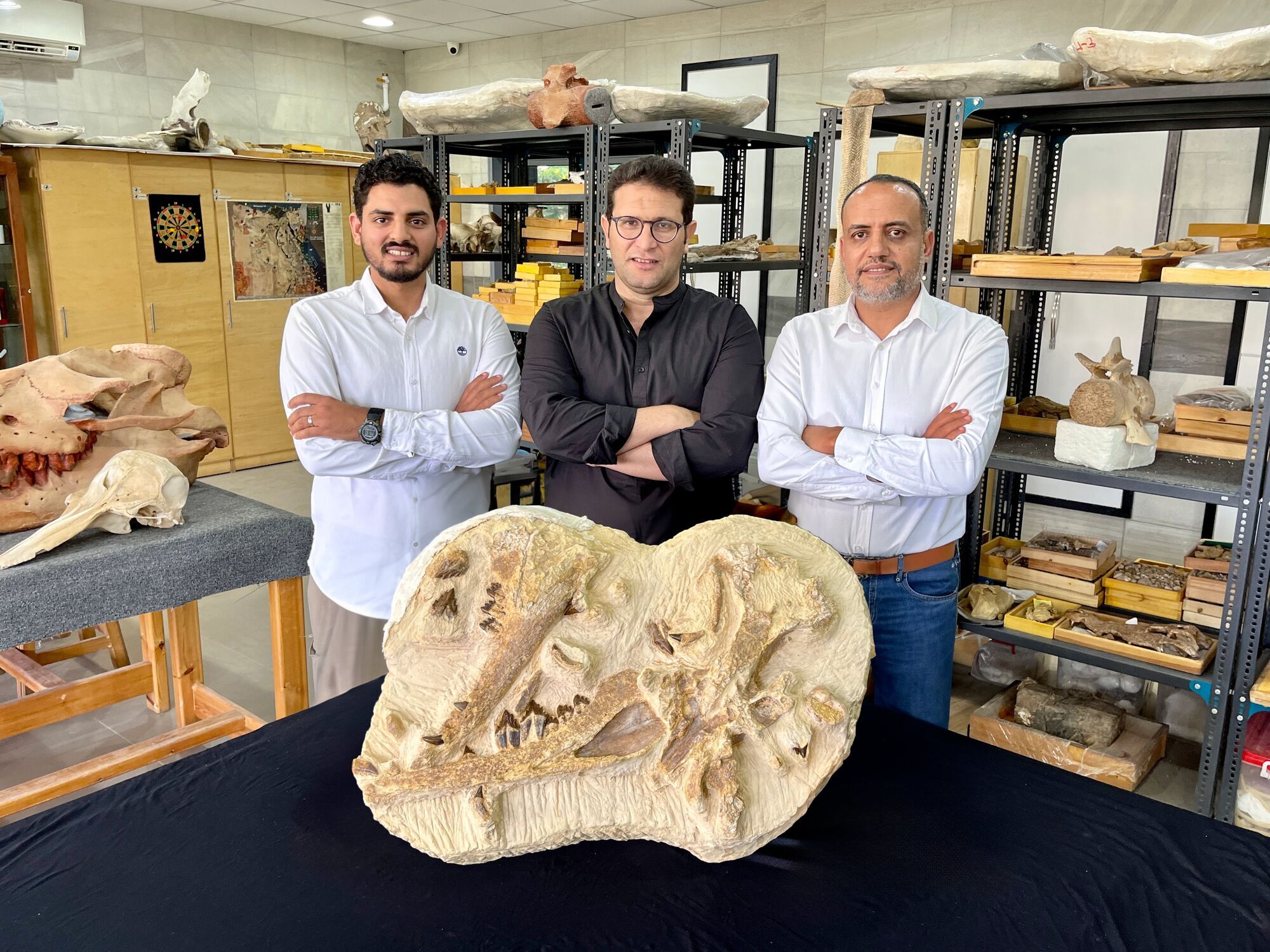The remains of a 41 million-year-old whale were found in the desert of Egypt (photo)

Paleontologists in Egypt have discovered the remains of a new species of extinct whale that inhabited the sea that covered modern Egypt about 41 million years ago. The new species, named Tutcetus rayanensis, was the smallest basilosaurid whale known to date.
According to the American University in Cairo, this creature was 2.5 meters long and weighed approximately 187 kilograms during its lifetime. It was named Tutcetus in honor of the Egyptian pharaoh Tutankhamun. It is noted that Tutcetus has provided scientists with excellent information about the life history, phylogeny and paleobiogeography of early whales.
Read also: Like Cthulhu: a creature with 20 hands was found in the Antarctic sea (creepy photo)
Team leader Hesham Sallam of the American University in Cairo (AUC) said that this is "a remarkable discovery that documents one of the first phases of the transition to an all-water lifestyle."


He explained that modern whales are migrating to warmer, shallower waters to breed, mirroring the conditions that existed in Egypt 41 million years ago. According to him, this supports the idea that the place now known as Fayum was a crucial breeding area for ancient whales.
Earlier, the remains of a spider, that lived on Earth more than 300 million years ago were found in Germany.
If you want to get the latest news about the war and events in Ukraine, subscribe to our Telegram channel!
